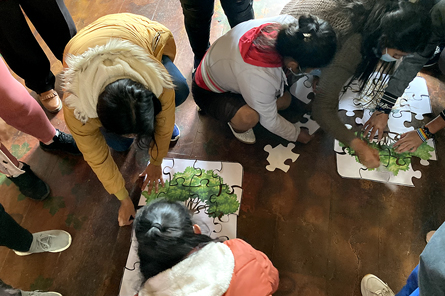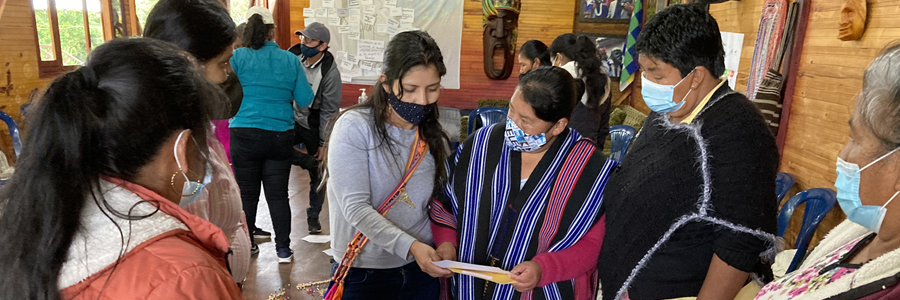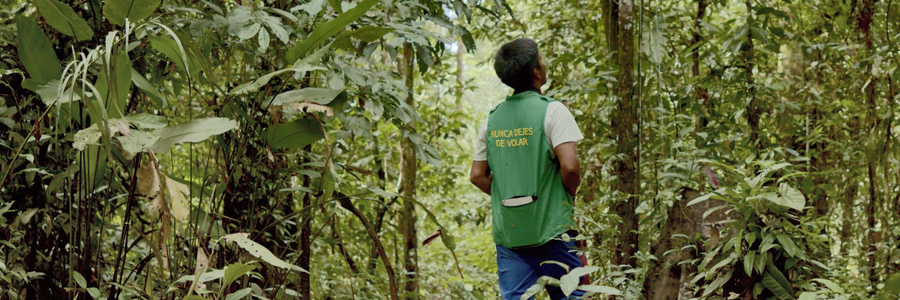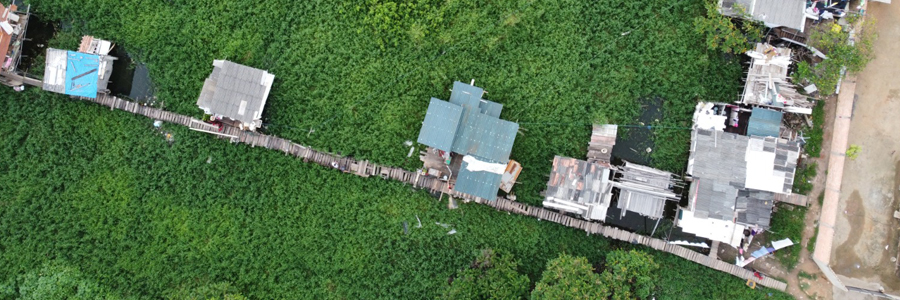Climate Security in Latin America and the Caribbean
The devastating consequences of climate change have brought the planet and the communities that inhabit it into a crisis. The climate emergency effects are possibly the foremost threat to security, health, and socio-economic and health wellbeing.
Due to cultural and social constructs, the climate emergency has differential gender effects. Men, women, and people of non-binary gender do not have the same expectations or the same levels of access, use and control of resources and decision-making platforms.
Therefore, examining the relationships between the climate crisis and human’s security results imperative for disaster risk governance and environmental security.

Outcomes/Workstream

Despite the progressive approach taken by the international community and policy makers to measure the differential effects of the climate crisis, the nexus between this crisis with gender constructions and relations and human security has been limited. Beyond a linear view of causes and effects it is necessary to examine the women-climate crisis-security triad from a radial approach to identify and measure differential impacts and intersections caused by human or related actions, based on women’s own experiences.
This project seeks to contribute to addressing this challenge by developing and refining a set of indicators to measure the individual and collective impacts of the climate crisis on the security conditions of different groups of women, which can be replicated in other countries and regional contexts. Reviewing and (de)constructing indicators is central to measuring specific risks affecting women in terms of severity, frequency, and extent.
For this purpose, Colombia was taken as a case study where multiple ecosystems, ethnic groups, factors of violence, environmental problems and conditions of armed conflict converge. Specifically, the project was implemented in the department of Putumayo, in the Amazonian foothills, where women from rural areas and with different levels of organization and activism will be included. Likewise, and considering the central role played by the security sector in the actions aimed at the prevention and mitigation of environmental protection in the National Police of Colombia. Specifically, the variables considered by the police for the measurement of environmental security in the targeted areas were analyzed and their inputs will be collected for the refinement and validation of indicators.
Why indigenous women’s views on climate security matter - a Colombian case
For many indigenous people in the Amazon, security is a concept more closely linked to the well-being of the collective community and its natural environment. The military and police should work better and closer to the needs and demands of the local population, such as indigenous women, who have a lot of knowledge about how to respond to the new challenges posed by the effects of climate change.
In this podcast from the Knowledge Platform Security & Rule of Law's "Fragile Truths" series, DCAF presents recent research on indigenous strategies for adapting to climate change and their broader interpretation of security, and we discuss the role that 'ecofeminism' and the security sector can play in supporting these indigenous communities.

The Amazon is home to at least 10% of global biodiversity as well as 34 million people, including 385 indigenous groups spread across eight countries. However, men, women, and young people do not have the same expectations or the same levels of access, use, and control of resources and decision-making platforms. This means that the climate crisis is experienced and coped with differently according to gender and age. The impact of the dramatic degradation of the Amazon rainforest on human security is clear. Ecosystem degradation and disputes over resources are risk multipliers that have exacerbated human insecurity, conflicts over resources, and political-economic instability.
Therefore, examining the relationships between the climate crisis, youth, and security in the Amazon based on youth’s own experiences provides critical input for future interventions in areas including disaster risk reduction and can inform local security priorities in affected areas.
The project will critically analyze the effects of environmental factors on the security of younger generations living in the Amazon Region. Specifically, the project collected the narratives of young people and local organizations from eight countries which are part of the Amazon Cooperation Treaty Organization (ACTO) (Colombia, Peru, Ecuador, Brazil, Bolivia, Venezuela, Guyana, and Surinam ) through a series of videos.
They can be used as innovative tools to share information which can inform security sector practices and serve as education and training material for future disaster risk reduction programming.
Photo: CEROSETENTA/ DCAF

Brazil, the most biodiverse country in the world, with roughly 60% of the Amazon rainforest within its territory, is especially vulnerable to the impacts of climate change and other environmental risks. Brazil has vast natural resources and is one of the major exporters of agricultural products, minerals, and oil. However, extreme temperatures, drought, water scarcity and flooding, coupled with human-led environmental degradation and environmental crimes, undermine human security, and threaten the country’s socioeconomic development. Vulnerable groups including indigenous peoples and refugees are affected the most.
Although Brazilian civilian institutions are primarily responsible for disaster risk reduction (DRR) and environmental protection, in recent years the security sector has played an increasingly prominent role in addressing natural disasters and especially environmental crime. Recognizing that environmental risks are multifaceted and require inter-agency and cross-sectorial cooperation, this study explores the role of security actors in preparedness and protection, as well as the boundaries for its engagement in climate change adaptation (CCA), DRR and environmental protection.
The Brazilian government and Brazilian communities have invaluable experience protecting the environment and addressing environmental crime across a vast, complex, and biodiverse area. Approaches have evolved over time and offer important insights – for example related to data-driven and technology-enabled approaches to tackling environmental crime - which are applicable across a range of contexts.
This stocktaking study identified potential for security sector governance and reform (SSG/R) to enhance effective security provision related to climate and environmental risks through integrating human security approaches into preparedness and protection activities. This entails strengthening the capacities of security actors, coordination between federal, state, and municipal levels, and closer cross-sectoral cooperation, as well as an increased focus on the needs of vulnerable communities including migrants and refugees. This report includes practical recommendations for international donors and Brazilian government stakeholders.
Photo: LUIZ NISTAL

